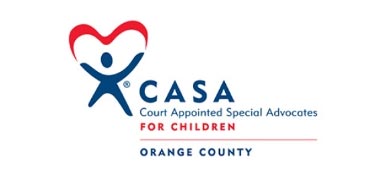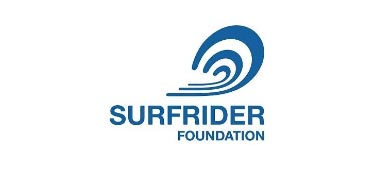
Estate planning documents such as wills, trusts, powers of attorney, and advance directives for health care all attempt to set forth a plan for your assets and health needs in the event of illness or death. They are most commonly seen as a rite of passage for those with home equity, maturity and parenthood. Because of the legal requirements involved with making sure these documents are not only enforceable but also accurately reflect your wishes, it is critical to work with an experienced estate planning attorney to create them.
But beyond the standardized “legal” estate planning documents lies a unique variation on the conventional will, known as an “Ethical Will.” The main difference between a “last will” and an Ethical Will is that the former is a binding legal document while the latter is not. The best way to understand how the two documents can co-exist is to examine what precisely an Ethical Will is all about.
Simply put, an Ethical Will is a statement from you to your loved ones intended to provide a non-economic inheritance, in addition to whatever you may have left them in your legal will. Our desire is that we pass on more than our home equity and savings accounts when we die. What footprint did we leave on the loved-ones that we helped form and with whom we shared a lifetime of knowledge? Recipients of your Ethical Will can include a much larger group of people than your beneficiaries under a legal will, to whom you leave your assets. It may include great-grandchildren, friends, nieces and nephews, and even long-time co-workers and neighbors. An Ethical Will can take many forms including written, an audio recording, or even a full-blown video production. Since it is not legally binding, there aren’t many rules you need to follow. It is your last message to the world carrying with it your history, your statement on morality and your desires for those you leave behind.
The point of an Ethical Will, also sometimes referred to as a Legacy Letter, is to let your family and friends know what you feel is vital in life based on your experiences and accumulated knowledge. Many people approach the preparation of an Ethical Will as a kind of final statement as you near the end of your life. It is one last opportunity to impart your values, life lessons, affirmations of love and appreciation, or any other information on your loved ones.
Many Ethical Wills delve into spiritual or religious matters, which are generally not appropriate for traditional estate planning documents. The concept of an Ethical Will is prevalent among members of the Jewish faith, but because the details are up to every individual, any person who wants to discuss spiritual or religious matters can do so as they see fit.
Although you should keep your Ethical Will with your other estate planning documents, it is important to remember that it is a very different kind of non-binding document that will be treated differently. As such, you should be extremely careful not to delve into issues regarding asset distribution or any other specifics that should be covered by a legally binding will. This document is designed to be your true legacy and should not address “transactions”. As a rule of thumb, your Ethical Will should stick to broader themes like morals, values, memories, and life lessons and your other estate planning documents like your trust(s) and last will and testament will address the legal transfer of assets, payment of taxes, etc.
A Traditional will is a catalog of the things one has at the end of life. It attempts to answer the question, “what do I want my loved ones to have?” However, we are more than the material possessions we collected during our time on Earth. We are a collection of experiences, lessons, memories, and, most importantly, stories. Ethical Wills/Legacy Letters attempt to answer the question, “what do I want my loved ones to know about our family and me.”
It takes courage to write an Ethical Will/Legacy Letter. To do so requires the author to look at the life honestly lived, to honestly assess one’s essential truths, to face one’s failures, and to consider what is truly important. Also, just as a traditional Will requires one to confront one’s mortality, so too, writing an Ethical Will/Legacy Letter needs the author to address their mortality and acknowledge there will be a time when they are no longer physically part of the life of their family.
Writing a document as personal as an Ethical Will is a daunting and emotional task. How do you begin? What do you say? What do you leave out? Here are some common questions you may want to consider as you start to draft your Ethical Will, courtesy of Rabbi Jack Riemer and Dr. Nathaniel Stampfer, authors of “Ethical Wills and How to Prepare Them”:
- What are the important things you have learned in life? What traits do you admire most in others?
- What important work have you begun that you hope your descendants can complete?
- Is there a verse of the Bible, poem, song or motto that might capture how you tried to live your life?
- These are some of the favorite possessions that I want you to have, and these are the stories that explain what makes these items so precious to me.
- These are causes for which members of our family have felt a sense of responsibility, and I hope you will too …
- These are some of the important lessons that I learned in my life … These are the people who influenced me the most …
- This is my definition of true success …
- This is how I feel as I look back over my life …
- I would like to ask your forgiveness for … and I forgive you for …
- I want you to know how much I love you and how grateful I am to you for…
We recommend preparing your Ethical Will in consultation with an experienced Estate Planning attorney to avoid unintended consequences after your death. Clearly stating that this is their opportunity to put down family history, values, life lessons, and maybe even bring the family together to reduce the likelihood of litigation.
Disclaimer: This article is intended to provide a general summary of laws in the State of California and should not be construed as a legal opinion nor a complete legal analysis of the subject matter. Noelle Minto is an attorney at NM Law, APC in Tustin, California, a law firm specializing in Trusts & Estates and Business Transactions.
Testimonials
Charities We Support
We dedicate pro bono time, volunteer services, and a percentage of our gross revenue to these organizations. In 2023, we sponsored a refugee family of five to come to the United States and start a new life.
Each year our law firm decides as a group which charities to assist with our time, money, and expertise. Please feel free to click on any of the charities below and make a donation of your own.


















